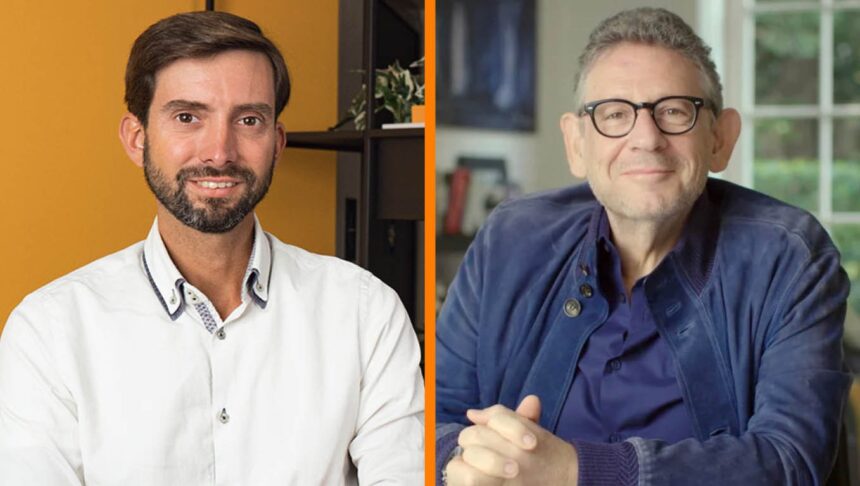Universal Music Group‘s proposed ‘artist-centric’ royalty model for streaming services has been a big talking point for the global industry this year – though the finer details of what the model might entail hasn’t always been clear.

Today (September 6) that’s all changed.
Deezer and UMG have announced the launch of what they call the “first comprehensive artist-centric streaming model”, designed, according to the companies “to better reward the artists, and the music that fans value the most”.
According to the Financial Times the model is expected by UMG and Deezer to “lift payouts to professional artists by 10 per cent”.
Deezer will launch the model in France next month (October 2023) with additional markets globally to follow in the new year.
The new model will see “professional artists” – defined as those who have a minimum of 1,000 streams per month and a minimum of 500 unique listeners – receive a so-called “double boost” to royalty payments.
In other words, when calculating their royalty payments, streams of their music will carry double the weight versus streams of ‘non-professional’ artists.
The Deezer model will also apply a ‘double boost’ – doubling the weight of streams again – for played tracks by artists that fans have actively searched for.
In effect, this will mean plays of songs by popular artists that fans have searched for will be 4X bigger than plays of songs by unpopular artists that have been algorithmically served to users.
Deezer and UMG say this will “reduce the economic influence of algorithmic programming”.
Another key element of the model: what Deezer calls “non-artist noise audio” will be de-monetized.
The definition of what constitutes “noise” hasn’t yet been defined in detail by the platform. What we do know: Deezer says it will replace all non-artist ‘noise’ content on its platform with its own ‘functional music’ content. This Deezer-made ‘functional’ content will then be excluded from the royalty pool paid out to music rightsholders.
Worth noting: Deezer has recently started making its own functional AI music for its ‘Zen by Deezer’ app.
As part of the artist-centric model, Deezer also intends to apply what it calls a “stricter provider policy” that includes steps “to limit non-artist noise content”. In other words, Deezer will limit the upload of certain music that’s deemed to be not of a high enough quality threshold.
Deezer notes that “size of the catalog available on digital platforms has exploded in recent years” and says that its own catalog grew from 90 million to over 200 million pieces of content in the past two years alone.
Indeed, amidst a rise in generative AI tools and a growing digital music distribution landscape, more recorded audio is being made and released than at any point in human history.
This vast supply of content, some of which is literally just white noise, has sparked annoyance amongst record business leaders like Universal Music Group Chairman and CEO, Sir Lucian Grainge, who calls it “oversupply”.
According to Luminate’s midyear report for H1 2023, including ISRC ingestion activity from Q2, across the whole of H1 2023, the average number of ISRCs (i.e. new music audio files) being added to music streaming services was 112,000, with 20.2 million uploads in total during the period.
Deezer says that streams tagged as “noise” represented approximately 2% of streams on the platform.
Additionally, as part of today’s announcement, Deezer has also pledged to tackle streaming fraud, by “continuing to drive an updated, and stricter, proprietary fraud detection system, removing incentives for bad actors, and protecting streaming royalties for artists”.
Deezer says that it identified approximately 7% of streams as fraudulent in 2022
This pledge follows Deezer’s strategy that set out back in June to “weed out illegal and fraudulent content” on its platform.
“This is the most ambitious change to the economic model since the creation of music streaming and a change that will support the creation of high-quality content in the years to come.”
Jeronimo Folgueira, Deezer
Jeronimo Folgueira, CEO of Deezer said: “This is the most ambitious change to the economic model since the creation of music streaming and a change that will support the creation of high-quality content in the years to come.
“At Deezer we always put music first, providing a high-quality experience for fans and championing fairness in the industry. We are now embracing a necessary change, to better reflect the value of each piece of content and eliminate all wrong incentives, to protect and support artists.
“There is no other industry where all content is valued the same, and it should be obvious to everyone that the sound of rain or a washing machine is not as valuable as a song from your favorite artist streamed in HiFi.”
“The goal of the artist centric model is to mitigate dynamics that risk drowning music in a sea of noise and to ensure we are better supporting and rewarding artists at all stages of their careers whether they have 1000 fans or 100 thousand or 100 million.”
Michael Nash, UMG
Michael Nash, UMG’s EVP and Chief Digital Officer, said: “The goal of the artist centric model is to mitigate dynamics that risk drowning music in a sea of noise and to ensure we are better supporting and rewarding artists at all stages of their careers whether they have 1000 fans or 100 thousand or 100 million.
“With this multi-faceted approach, music by artists that attracts and engages fans will receive weighting that better recognizes its value, and the fraud and gaming, which serves only to deprive artists their due compensation, will be aggressively addressed.
He continued: “Embracing the commonly shared objectives we highlighted at the outset of this chapter in our partnership, together we’ll maintain a flexible and adaptive approach.
“As the ever-evolving music landscape continues its rapid transformation, UMG and Deezer will rigorously address the impact of these changes as we incorporate new insights from data analysis, and fine-tune the model, as appropriate.”
“This comprehensive initiative will much more effectively value fan engagement and active streaming of music created by artists.”
Olivier Nusse, Universal Music France
Olivier Nusse, CEO of Universal Music France, said: “After extensive engagement with Deezer throughout 2023, we are very proud to be pioneers in France in the highly anticipated roll out of their version of the Artist Centric model.
“This comprehensive initiative will much more effectively value fan engagement and active streaming of music created by artists.”Music Business Worldwide








